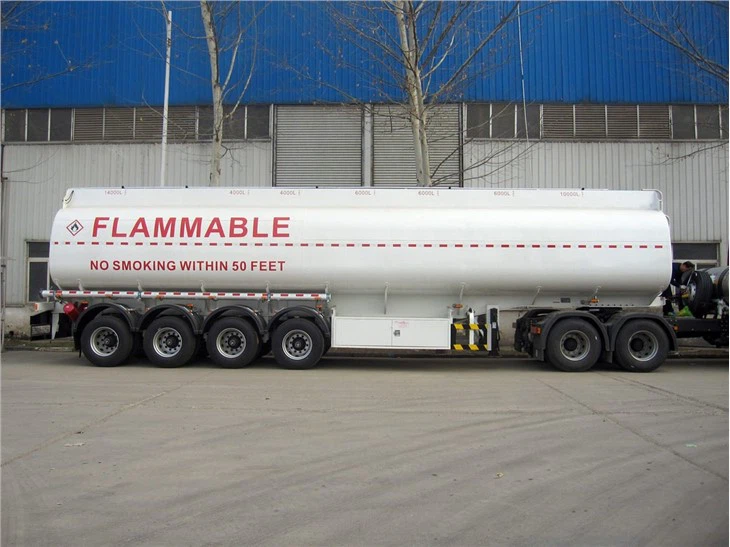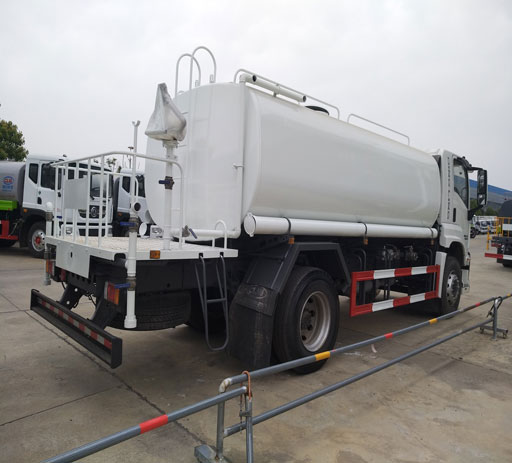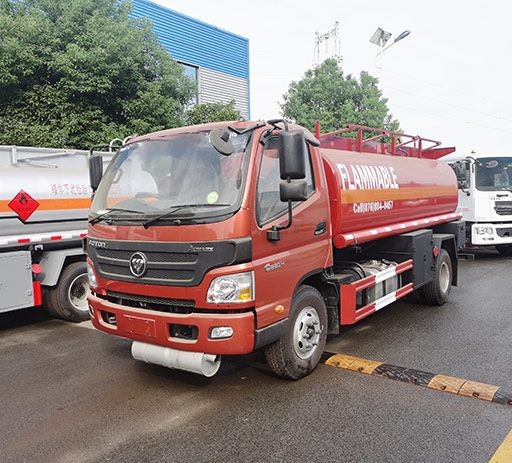Compactor Trucks: The Ultimate Guide to Waste Management and Efficiency

Introduction to Compactor Trucks
Compactor trucks are essential vehicles in the waste management industry, designed to compress the material collected for efficient disposal. These trucks are specifically engineered to handle various types of waste, ensuring that large amounts of refuse can be transported with minimal trips and maximized efficiency. With growing urban populations and an increasing focus on sustainability, understanding the role and operation of compactor trucks is more relevant than ever.
What Are Compactor Trucks?
Compactor trucks, also known as refuse trucks or garbage trucks, are specialized vehicles equipped with a mechanical compaction system that compresses waste material before transporting it to disposal or recycling facilities. The primary goal of these trucks is to optimize space within the truck body, allowing for larger loads and reducing the number of trips required for waste collection.
Types of Compactor Trucks
There are several types of compactor trucks, each designed for specific waste management needs:
- Rear Loader Compactors: These trucks have a compaction mechanism at the rear and are commonly used for residential waste collection.
- Front Loader Compactors: Front loaders are equipped with forks that lift and dump waste bins into the truck from the front.
- Side Loader Compactors: Side loaders have a compaction unit on the side, allowing them to collect waste along curbs without requiring the driver to leave the vehicle.
- Auto-Load Compactors: These trucks automate the collection process, improving efficiency and safety by minimizing manual labor.
How Compactor Trucks Work
The operation of compactor trucks involves several steps to ensure efficient waste collection and disposal.
The Collection Process
Compactor trucks begin their route by driving to designated waste collection points. Equipped with various tools, these vehicles can efficiently gather waste from different sources.
Steps in the Collection Process:
- Arrive at the collection site and position the truck.
- Use hydraulic arms or other mechanisms to lift waste containers.
- Dump waste into the truck’s hopper.
- Activate the compaction mechanism to compress the waste.
- Secure the load and proceed to the next collection point.

The Compaction Mechanism
Once the waste is loaded into the truck’s body, the compaction mechanism activates. This can involve a hydraulic ram that pushes the waste down and compacts it into a tighter space. The primary benefit of this process is that it increases the truck’s load capacity, allowing for more waste to be transported in a single trip.
Benefits of Compactor Trucks
Compactor trucks offer numerous advantages for waste management systems, including:
Increased Efficiency
With a compaction ratio often reaching 3:1 or higher, compactor trucks can reduce the frequency of trips required, saving both time and fuel costs.
Cost-Effectiveness
By reducing the number of trips necessary for waste collection, compactor trucks can significantly lower operational costs related to fuel, labor, and equipment wear and tear.
Environmental Impact
Less reliance on multiple trips translates to lower carbon emissions. Furthermore, organized waste management contributes to better recycling practices, promoting sustainability.
Improved Safety and Sanitation
By adequately storing and compacting waste, these trucks help minimize odors and prevent spillage, contributing to a cleaner urban environment.
Choosing the Right Compactor Truck
Selecting the appropriate compactor truck can be critical for your waste management strategy. Here are key considerations:
1. Type of Waste
Different types of waste require specific compactor features. For example, organic waste might need a different type of compaction system compared to construction debris.
2. Load Capacity
Consider the volume of waste your operations typically generate. Compactor trucks come in various sizes, so it’s crucial to choose one that aligns with your workload.
3. Route Efficiency
Analyze the collection routes. The truck you choose should be able to navigate these routes easily, whether they involve tight urban streets or expansive industrial areas.
4. Budget and Operating Costs
Your budget plays a significant role in the selection of a compactor truck. Evaluate the initial investment versus long-term operational costs to find a balance that suits your financial constraints.
Maintenance of Compactor Trucks
Regular maintenance is crucial for ensuring the longevity and efficiency of compactor trucks. Here are essential maintenance tips:
Daily Checks
- Inspect hydraulic fluid levels to ensure proper functioning of the compaction mechanism.
- Check for any visible damage to the truck body or compaction unit.
- Examine tire pressure and general vehicle health.
Routine Maintenance (Monthly/Quarterly)
Establish a routine for deeper inspections of the truck, including:
- Changing the hydraulic fluid as necessary.
- Lubricating moving parts to prevent wear.
- Inspecting electrical systems and cleaning filters.
Innovations in Compactor Truck Technology
As technology advances, compactor trucks are becoming increasingly sophisticated:
Telematics
Many modern compactor trucks come equipped with telematics systems that provide real-time data on truck performance, fuel consumption, and maintenance needs.
GPS Routing
GPS and routing software can optimize collection routes, reducing fuel consumption and improving efficiency.
Smart Compaction Systems
Emerging technologies are working toward smarter compaction systems that automatically adjust based on the type of waste collected, improving performance further.
Regulations and Compliance
Waste management operations are subject to various local, state, and federal regulations. It’s essential to stay compliant to avoid fines and ensure sustainable practices.
Understanding Local Regulations
Familiarize yourself with waste disposal regulations in your area. These may dictate how waste needs to be sorted, collected, and disposed of.
Safety Standards
Compactor trucks must adhere to safety standards to minimize workplace accidents. Regular training for drivers and waste collection personnel is necessary.
Practical Examples of Compactor Truck Usage
Many municipalities and private waste collection services depend on compactor trucks to maintain cleanliness and efficiency in waste management.
Case Study: City XYZ Waste Management Program
City XYZ implemented a fleet of semi-automated compactor trucks to manage residential waste collection, resulting in:
- A 30% reduction in operational costs.
- A decrease in carbon emissions due to fewer trips.
- Improved community satisfaction levels related to waste services.
Tip: Partnering with Waste Management Innovators
If you’re managing a waste collection operation, consider partnering with manufacturers that offer the latest technology to improve the safety, efficiency, and sustainability of your fleet.
FAQs About Compactor Trucks
1. What is the average lifespan of a compactor truck?
The lifespan of a compactor truck typically ranges from 8 to 15 years, depending on usage and maintenance practices.
2. How much waste can a compactor truck hold?
The capacity varies but typically ranges from 10 to 30 cubic yards, depending on the type and model of the compactor truck.
3. What are the typical maintenance costs for compactor trucks?
Maintenance costs can vary widely but average around 10-20% of the initial purchase price annually, including repairs and routine services.

4. Can compactor trucks handle recycling materials?
Many compactor trucks are designed to handle recyclable materials, but specific configurations might be necessary to optimize for different types of recyclables.
5. Are there any environmental benefits to using compactor trucks?

Yes, compactor trucks reduce fuel consumption and emissions by minimizing the number of trips needed for waste collection and promoting effective waste management practices.
6. How do I train staff to operate a compactor truck?
Training should include instruction on the operation of the truck’s compaction mechanisms, safety protocols while on duty, and adherence to local waste management regulations.
